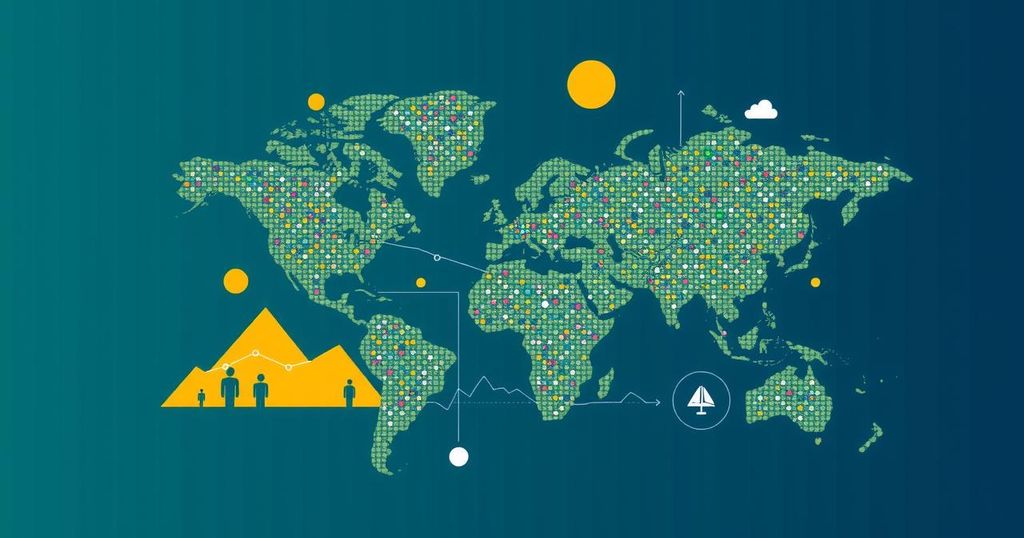COP29 concluded in Baku with a climate finance deal promising $300 billion annually by 2035. However, many developing nations criticized the amount as inadequate and urged faster transitions to clean energy. The summit was overshadowed by Trump’s election, which jeopardized U.S. contributions. Despite achieving a carbon credit framework, concerns grew over global emission trends and trade tensions, while fossil fuel interests appeared to dominate discussions.
This year’s COP29 climate summit, held in Baku, Azerbaijan, concluded with a climate finance agreement after extensive negotiations extending two days beyond the deadline. Central to the discussions was the establishment of an annual global climate finance target, which resulted in a commitment of $300 billion by the year 2035. However, this figure was deemed insufficient by many developing nations, which expressed concerns that a decade-long deadline would hinder urgent progress toward clean energy transitions.
The mood at COP29 was further impacted by the unsettling prospect of Donald Trump’s victory in the recent presidential election, as he has pledged to withdraw the United States from international climate commitments. Many feared that the absence of substantial U.S. contributions, given its status as the largest historical emitter of greenhouse gases, would undermine the summit’s objectives.
A significant development at COP29 was the breakthrough in establishing a rulebook for carbon credits. This agreement paves the way for nations to generate carbon credits, thereby facilitating funding and allowing for emissions trading, though remaining issues concerning registries and transparency must still be addressed. Proponents of carbon offsetting are optimistic that this will attract substantial investment to climate-related projects.
Despite years of negotiations and agreements, alarming trends persist, including rising greenhouse gas emissions and global temperatures. The year is projected to become the warmest on record, with numerous extreme weather events resulting in devastating impacts, such as flooding in Africa and drought conditions in South America. Countries voiced frustrations regarding the slow pace of progress amid increasing climate-related disasters.
The summit also highlighted trade tensions, particularly as developing nations advocated for the elimination of climate-related trade barriers that hinder their economic green initiatives. The European Union’s planned carbon border tax and potential tariffs from the Trump administration were central topics, prompting the UN climate body to include these discussions in future agendas.
Finally, COP29 was characterized by fossil fuel narratives, as it was hosted in a country that actively promotes oil and gas development. This backdrop illustrated a failure to secure further commitments to transition away from fossil fuels, raising concerns that fossil fuel interests may be impeding the efficacy of climate negotiations.
The COP29 climate summit is a critical platform where nations discuss and negotiate commitments to combat climate change. This year’s discussions were marked by tensions around financing, environmental responsibilities between developed and developing nations, and the growing influence of political changes, particularly the anticipated policies of the incoming U.S. administration. The summit also sought to address the polarizing topics of carbon credits and trade barriers which have significant implications for future climate action.
The COP29 summit underscored the ongoing challenges of global climate negotiations, from inadequate financial commitments to the influence of fossil fuel interests. While agreements on carbon credits were notable achievements, the overarching sentiment reflected a growing concern over the slow pace of necessary action in the face of escalating climate impacts. The summit cemented the need for urgent international collaboration to align financial mechanisms with the exigent demands of climate justice and resilience.
Original Source: kathmandupost.com






